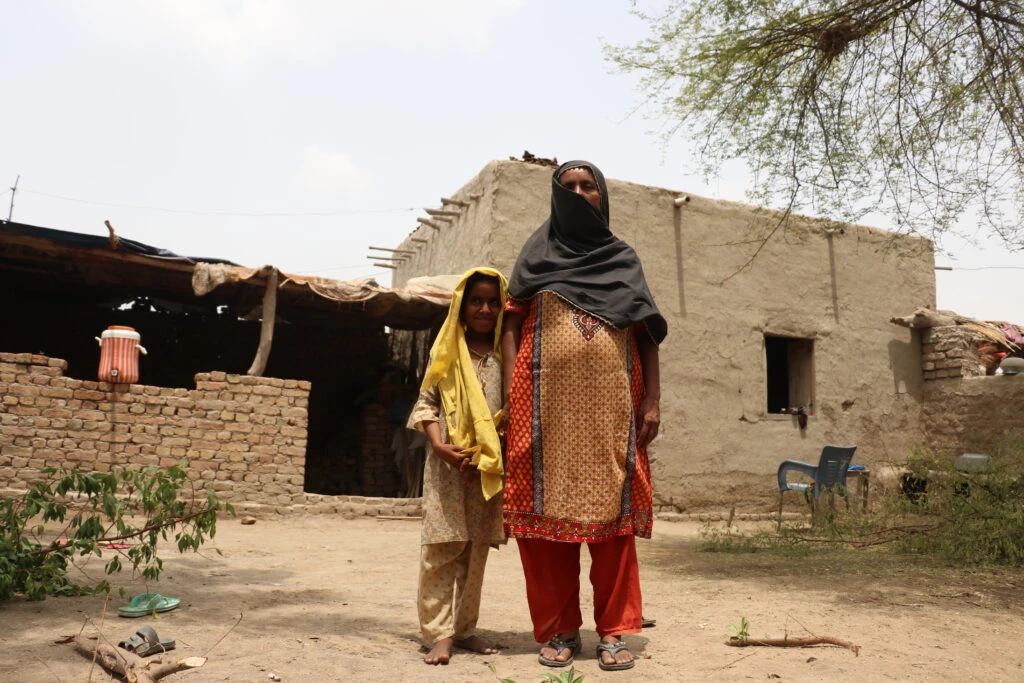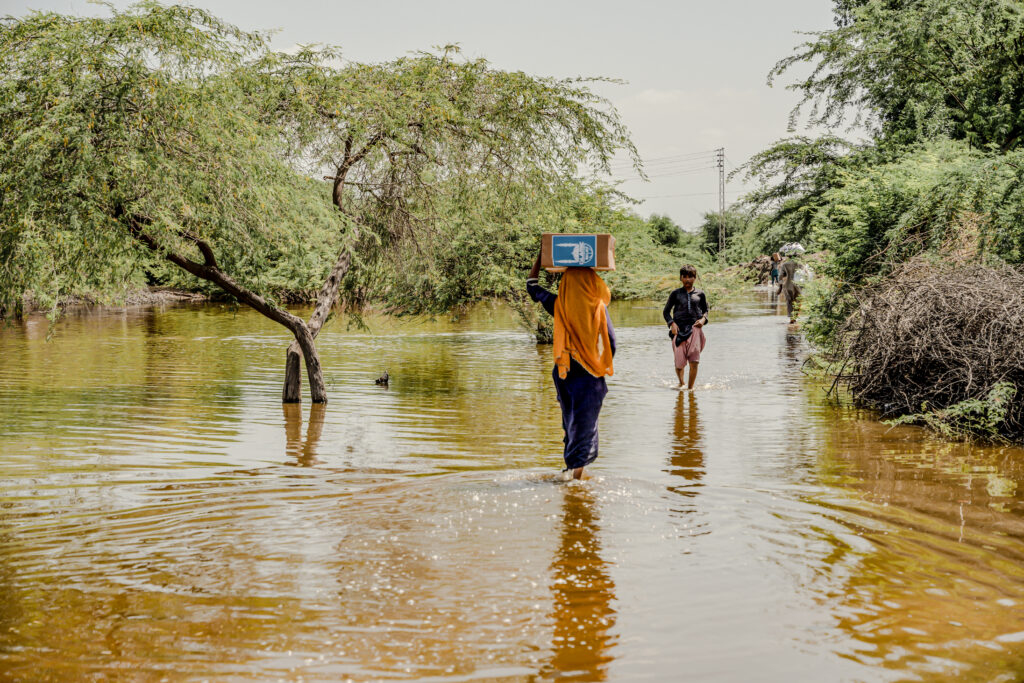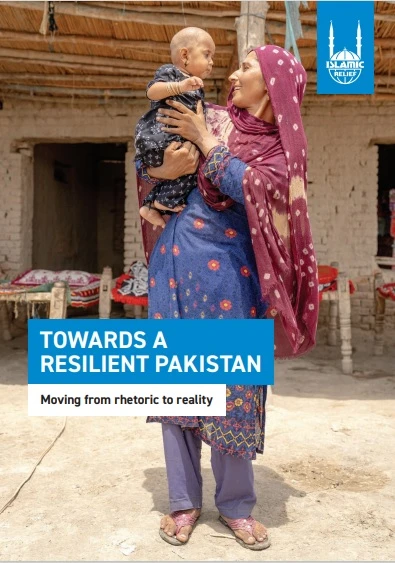“We have started working on our land, where we are sowing rice seeds right now,” explains Azeema, a single mother who lost everything when her home was destroyed by catastrophic flooding 1 year ago.
In 2022, Pakistan was hit by the worst floods in living memory. The fallout was so severe that the numbers can be difficult to comprehend.
33 million people – 1 in 7 Pakistanis – were affected in some way, and a third of the country was submerged. The damage to infrastructure and the economy was put at $30 billion (approx. £24 billion).
Millions of people were forced into poverty after losing their livestock, land, and jobs.
When Azeema was eventually able to return to her village in Sindh province, she lived in a tent for months with her daughter Rubab. Azeema took up sewing jobs for fellow villagers, earning just enough money for food, but it wasn’t enough to meet all the family’s needs.
Rebuilding homes and lives
“We were completely hopeless and had lost everything when Islamic Relief came to our village,” Azeema says, explaining that Islamic Relief installed hand pumps and built new latrines in the area, as well as provided cash grants to help residents meet their daily needs.
“We have rebuilt our home using the cash grant and now it’s complete after almost 1 year of living in tents,” she says.
“We have started living the same life as before the floods. My daughter goes to school as well and I hope to see her prosper in life.”

Azeema and Rubab are among 1.5 million flood-affected people Islamic Relief has so far reached with help to rebuild their lives and communities.
From 3 August 2022, we began our emergency response in Balochistan, quickly expanding to also distribute life-saving aid in Sindh and Khyber Pakhtunkhwa (KP) provinces.
This included providing urgently needed essentials such as food, hygiene items, water and shelter, along with cash grants to help people meet their immediate needs.
Long-term support
In the year since the flooding, Islamic Relief’s support has moved from emergency response to long-term development programming aimed at rebuilding shattered communities.
We recognise it will take years to help some families become self-reliant once more and are committed to offering our continued support until it becomes a reality.
The most pressing need for those who lost everything is securing permanent shelters, as thousands of families lack the funds and other resources to rebuild their destroyed homes.
Schools are also desperately needed as many were lost in the disaster, leaving children without the opportunity to learn, while vital health facilities were also washed away.
Islamic Relief is building zero carbon, disaster resilient and climate friendly shelters in Sindh and Balochistan.

Now many communities are back in their original villages, health facilities are continuing to be rehabilitated. Islamic Relief has provided new-born kits to mothers containing items to cope malnutrition and infections.
Since thousands of children are missing out on important education due to damaged infrastructure, Islamic Relief has established Temporary Learning Centres (TLCs) ensuring children can continue to receive some level of education.
We also ran information sessions on hygiene and the dangers of water-borne diseases.
The road ahead
While assessing and addressing needs on the ground, we are calling on the international community to help Pakistan get back on its feet.
Climate change undoubtedly affected the intensity of the flooding and Pakistan is among the countries most vulnerable to climate change’s negative effects.
However, it is also responsible for just 0.88% of global emissions – less than 1/8 of the United States’ per capita emissions and 1/3 third of the United Kingdom’s.
Earlier this month, we launched a report laying bare the devastating long-term impact of the floods and arguing that rich nations must do much more to compensate the people who are most affected by climate change.
Speaking at the launch of the report in Islamabad, Waseem Ahmad, the CEO of Islamic Relief Worldwide, said:
“No amount of financial aid can compensate those who have lost loved ones and seen their homes and everything they own destroyed. But we need to see climate justice, where the biggest polluters pay for the damage and destruction caused by climate change.
“The emergency response to the floods in Pakistan saved many lives, but as the flood waters have receded international commitments have also dried up. Billions of dollars in donor pledges have yet to materialise and the international community has failed to deliver its promises to substantially curb global emissions, help the worst affected communities adapt, and deliver climate financing for countries like Pakistan. It’s time world leaders translate rhetoric to reality.”
Our campaigning work goes hand-in-hand with our emergency response and development programming, to address the root causes of suffering in communities we serve in Pakistan and beyond.
A year on from the flooding in Pakistan everyday life remains challenging for millions of affected people. Please help Islamic Relief continue to support those in need. Donate to our Pakistan Floods Appeal now.











